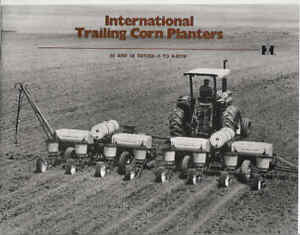I got a little pushback on my first Ransom essay, which is ok and to be expected in Iowa. I don’t expect anybody to swallow this stuff without chewing. Feel free to engage. I encourage you to do it in the comments section that follows the essay, so this can be an open and public forum. Because I feel like I only have about 1000 words to make a point before losing most of you, Ransom was divided into two, and here is Part II.
You might recall from the first one that I said we do little to address the underlying methods and economics that are driving the stream nutrient pollution. I feel strongly that this is true.
There is an ag policy writer named Bryce Oates. I have learned some things from him:
• All productivity in the U.S. has increased 77% since 1973. However, real wages have increased only 12% (Link). Thus the investor class has siphoned off most of this increase. (Although I do think this is a problem, I don’t mean to use “investor class” in a hostile way; many of us fall into that category).
• Things are not that different in agriculture. In 1973, farmers got $0.40 of the consumer food dollar. In 2017, this was slightly less than $0.15, which is worse than it sounds because half of that $0.15 was actually spent purchasing products from other industry groups (think livestock producers buying feed grain) (link).
• In 1973, average Iowa corn yield was about 90 bushels per acre. Last year it was 196 bushels per acre, thus the productivity increase for corn production is basically on par with the economy as a whole, and maybe even a little bit better. Some of that increase may be due to more favorable weather, but who cares, a big increase.

Many want to understandably celebrate the productivity and innovation of the Iowa farmer. So why aren’t we compensating them accordingly? Where are the financial benefits of this productivity increase going? (I probably don’t need to tell you).
I’ve come to believe that what I just described is part and parcel of the water quality and other pollution problems associated with corn and soybean production. As I said in Ransom, farmers operate within a more bushels/lower price spiral. We’ve rewarded their productivity increases with less money per bushel, just like wage earners in our society.
Someone once told me the definition of an agronomist is a person who never ceases to be amazed by a plant’s response to nitrogen. Now, that increase from 90 to 196 bushels per acre owes more to crop genetics and weed and pest control than nitrogen, but the farmer needs “enough” nitrogen to reach the yield potential conveyed by these other factors. And make no mistake, farmers want to reach that yield potential because of the “more bushels” world they live in, and because of the inherent satisfaction that comes with improvement. Also, those seeds were really expensive. To that end, we have underlain our landscape with what is essentially the largest storm sewer on earth to lower the water table (1), and then keep it saturated with nitrogen (2), much of it in the loss-vulnerable and water soluble form of nitrate. People that study these things even have a saying for this engineered creation: “the leaky system”, a term I think coined by Jerry Hatfield at the Agricultural Research Service of USDA. Most of the approaches we have to reducing nitrate loss and improving water quality also focus on maintaining (1) and (2). One of the problems we have here, however, is in nature, you don’t get something for nothing, no matter how hard you want that to be true.

Up to this point, I think you may be able to make the case for public participation (i.e., $$) in these approaches. The bridge too far for me is that we also are asked to indemnify the whole kit and caboodle with publicly-supported crop insurance, which inherently incentivizes environmentally-suspect practices. I just cannot square these things in my mind, along with a license to pursue whatever means necessary to maximize crop yields, with a rational approach to better Iowa stream water quality. I just don’t know how you do it, and my sense is that many of our institutions have not thought this through very well, or that they are in denial about it.
Farmers often shoulder the “blame” for poor water quality, which they understandably hate. I would just ask, where are the major beneficiaries of these productivity increases and “Max Acres” policies when it comes to water quality? Currently we rely on the altruistic instincts of farmers to improve water quality and we try to inspire those feelings with public cost share for best management practices. But I think farmers are like the rest of us. We’re not all driving Priuses or putting solar panels on our roofs.
“One of the problems we have here, however, is that in nature, you don’t get something for nothing, no matter how hard you want that to be true.”
What is mysterious to me is why farmers have gone along with it all. What I mean by that is this: Why have they gone along with largely relinquishing the benefits of increased productivity while at the same time being forced to absorb the blame for the water quality problems connected to this increased productivity? Maybe some would say they had no choice. I don’t know. A few months ago, I was on a water quality panel with two farmers. One operated a crop-livestock operation in eastern Iowa with her husband. She very clearly and movingly articulated the financial struggles her family was forced to confront in keeping the operation viable. Later on I asked her, if she and other farmers were not getting the economic outcomes they felt they deserved, why did they so tenaciously defend “the system”? The answer was that she felt farmers were committed to providing cheap food to America (cheap was not meant to be a derogatory statement about food quality). I don’t feel qualified to dive into her response any further, and will just let it stand on its own.
Here we are 983 words later. If you think I am wrong about any of this, I invite you tell me below in the comments section why you think that way.